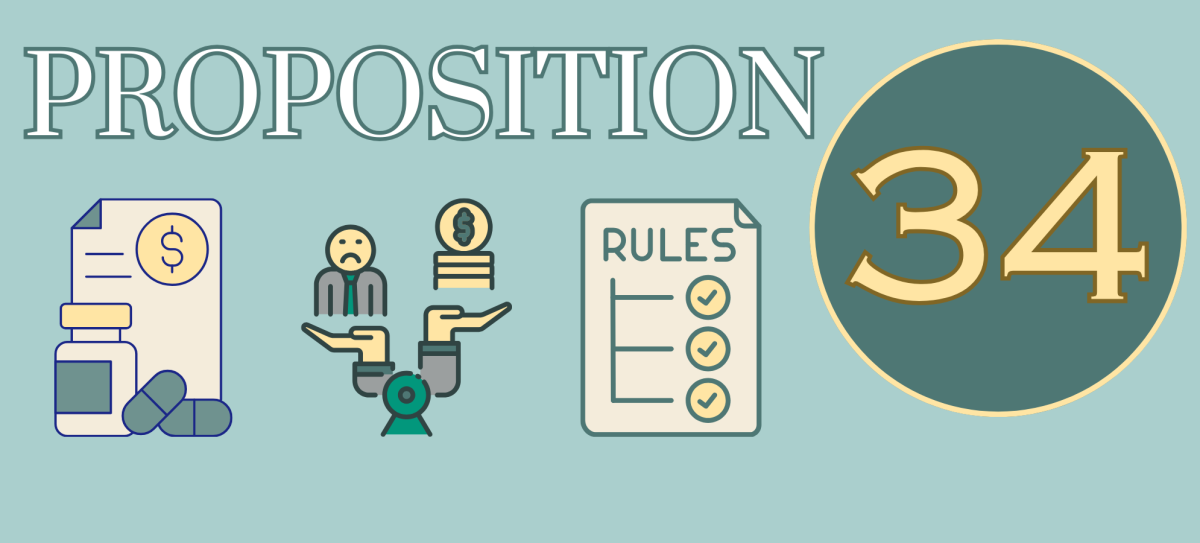Proposition 34 would require qualifying private or public healthcare entities to spend 98% of their net revenue from the discount prescription drug program on direct patient care and permanently authorize the Medi-cal RX program.
The Federal 340B Drug Pricing Program, created by Congress in 1992, aims to protect hospitals serving low-income patients from raising drug prices and to stretch federal funds. The program’s goal is for the money saved from discounts to help providers expand health services to patients and communities.
However, some entities have been found to use the revenue on non-patient care expenses, such as housing units, stadium naming rights, and lobbying.
In January 2019 Gavin Newsom issued executive order N-01-19 to lower prescription drug prices to combat the yearly 20% increase that began in 2012, caused by pharmaceutical companies holding monopolies on certain prescriptions.
The executive order called for the Department of Health Care Services (DHCS) to transition pharmacy services managed by Medi-Cal to a “fee-for-service” program, along with consolidating bulk drug purchases for high-priority drugs.
According to the DHCS, this shift is known as “Medi-Cal RX” standardized Medi-Cal pharmacy benefits statewide, expanded access to pharmacy services and strengthened the state’s power in negotiation for state supplemental drug rebates from manufacturers. Section 14124.42 under Proposition 34 intends to permanently authorize the Medi-Cal RX program in state law.
Proposition 34 section 14124.44, effective Jan. 1, 2025, says any “prescription drug price manipulators” could lose their California tax-exempt status and licenses to operate healthcare facilities or plans unless 98% of their revenue from the discounted drug program was spent on direct patient care and they had not acted fraudulently or risked public safety in the last year.
A “prescription drug price manipulator” is expressed in the proposal text as any entity and its affiliate entities that acquired prescriptions from the discount drug program, had a 10-year period where they spent over $100 million on non-direct patient care, and owned highly dangerous property. The entity must have held a license to operate a healthcare facility or plan, be currently contracted as a primary care case management organization or have been contracted with federal centers for Medi-Cal or Medicaid.
Any entity determined to be a “prescription drug price manipulator” would be required to report its annual net revenue from the Discount Prescription Drug Program and how it was spent. The cost of enforcement is estimated in the millions to cover it so the state can charge fees to the entities found in violation.
Proposition 34 would establish four 10-year penalties: loss of California tax-exempt status, loss of license, ineligibility for state or local government contracts or grants and a ban for all those in positions that had control over the entity in violation from serving in leadership roles in health insurance companies, pharmacies, or clinics.
Opponents of Proposition 34 such as Consumer Watchdog, argue it was created by the California Apartment Association to remove the AIDS Healthcare Foundation’s (AHF) ability to oppose them because AHF has promoted propositions that would remove limits on rent control.
Opponents also claim it violates the U.S. Constitution as a Bill of Attainder, and sets a dangerous precedent by allowing legislation to be weaponized.
Supporters of Proposition 34 argue it will stop the worst “bad actors” from misusing the 340B Drug Pricing Program for “pet projects” and prevent future misuse, allows taxpayers to know their money is being used on direct patient care, and lowers drug prices overall.
A “yes” vote would establish new rules for how healthcare entities spend revenue from federal drug programs and impose penalties for any that have already broken the rules or those who do in the future.
A “no” vote would mean that none of the new rules would go into effect and Medi-Cal RX wouldn’t be a permanently authorized program.






Mason Koski • Oct 20, 2024 at 11:17 pm
I would note that in the language of the actual measure both KQED, NBC Bay Area, CalMatters, etc. Have all found that Prop 34 would only actually apply to the AIDS Healthcare Foundation. I’d also note that the California Apartment Association who would be heavily impacted if Prop 33 passed, has spent $36.1 Million Dollars to get Prop 34 on the Ballot. This is a political hit job to cripple the AIDS Healthcare Foundation which is the largest non-profit medical provider of AIDS & HIV Healthcare Services in the U.S.